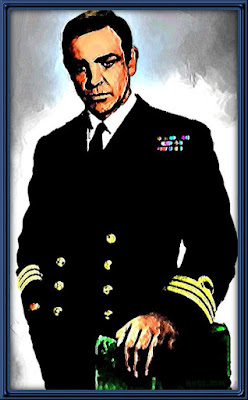Commander James Bond, C.M.G., R.N.V.R.
The Times of London:
M. writes:--
As your readers will have learned from
earlier issues, a senior officer of the Ministry of Defence, Commander James
Bond, C.M.G., R.N.V.R., is missing, believed killed, while on an official
mission to Japan. It grieves me to have to report that hopes of his survival
must now be abandoned. It therefore falls to my lot, as the Head of the
Department he served so well, to give some account of this officer and of his
outstanding services to his country.
James Bond was born of a Scottish father,
Andrew Bond of Glencoe, and a Swiss mother, Monique Delacroix, from the Canton
de Vaud. His father being a foreign representative of the Vickers armaments
firm, his early education, from which he inherited a first-class command of
French and German, was entirely abroad. When he was eleven years of age, both
his parents were killed in a climbing accident in the Aiguilles Rouges above
Chamonix, and the youth came under the guardianship of an aunt, since deceased,
Miss Charmian Bond, and went to live with her at the quaintly-named hamlet of
Pett Bottom near Canterbury in Kent. There, in a small cottage hard by the
attractive Duck Inn, his aunt, who must have been a most erudite and
accomplished lady, completed his education for an English public school, and,
at the age of twelve or thereabouts, he passed satisfactorily into Eton, for
which College he had been entered at his birth by his father. It must be
admitted that his career at Eton was brief and undistinguished and, after only
two halves, as a result, it pains me to record, of some alleged trouble with
one of the boys' maids, his aunt was requested to remove him. She managed to
obtain his transfer to Fettes, his father's old school. Here the atmosphere was
somewhat Calvinistic, and both academic and athletic standards were rigorous.
Nevertheless, though inclined to be solitary by nature, he established some
firm friendships among the traditionally famous athletic circles at the school.
By the time he left, at the early age of
seventeen, he had twice fought for the school as a light-weight and had, in
addition, founded the first serious judo class at a British public school. By
now it was 1941 and, by claiming an age of nineteen and with the help of an old
Vickers colleague of his father, he entered a branch of what was subsequently
to become the Ministry of Defence. To serve the confidential nature of his
duties, he was accorded the rank of lieutenant in the Special Branch of the
R.N.V.R., and it is a measure of the satisfaction his services gave to his
superiors that he ended the war with the rank of Commander. It was about this
time that the writer became associated with certain aspects of the Ministry's
work, and it was with much gratification that I accepted Commander Bond's
post-war application to continue working for the Ministry in which, at the time
of his lamented disappearance, he had risen to the rank of Principal Officer in
the Civil Service.
The nature of Commander Bond's duties
with the Ministry, which were, incidentally, recognized by the appointment of
C.M.G. in 1954, must remain confidential, nay secret, but his colleagues at the
Ministry will allow that he performed them with outstanding bravery and
distinction, although occasionally, through an impetuous strain in his nature,
with a streak of the foolhardy that brought him in conflict with higher
authority. But he possessed what almost amounted to "The Nelson
Touch" in moments of the highest emergency, and he somehow contrived to
escape more or less unscathed from the many adventurous paths down which his
duties led him. The inevitable publicity, particularly in the foreign press,
accorded some of these adventures, made him, much against his will, something
of a public figure, with the inevitable result that a series of popular books
came to be written around him by a personal friend and former colleague of
James Bond. If the quality of these books, or their degree of veracity, had
been any higher, the author would certainly have been prosecuted under the
Official Secrets Act. It is a measure of the disdain in which these fictions
are held at the Ministry, that action has not yet -- I emphasize the
qualification -- been taken against the author and publisher of these high-flown
and romanticized caricatures of episodes in the career of a outstanding public
servant.
It only remains to conclude this brief in
memoriam by assuring his friends that Commander Bond's last mission was one of
supreme importance to the State. Although it now appears that, alas, he will
not return from it, I have the authority of the highest quarters in the land to
confirm that the mission proved to be one hundred per cent successful. It is no
exaggeration to pronounce unequivocally that, through the recent valorous
efforts of this one man, the Safety of the Realm has received mighty
reassurance.
James Bond was briefly married in 1962,
to Teresa, only daughter of Marc-Ange Draco, of Marseilles. The marriage ended
in tragic circumstances that were reported in the press at the time. There was
no issue of the marriage and James Bond leaves, so far as I am aware, no
relative living.
M.G. writes:
I was happy and proud to serve Commander
Bond in a close capacity during the past three years at the Ministry of Defence.
If our fears for him are justified, may I suggest these simple words for his
epitaph? Many of the junior staff here feel they represent his philosophy:
"I shall not waste my days in trying
to prolong them. I shall use my time."
- From the novel You Only Live Twice by Ian Fleming. Published by Jonathan Cape:
London (1964).

No comments:
Post a Comment